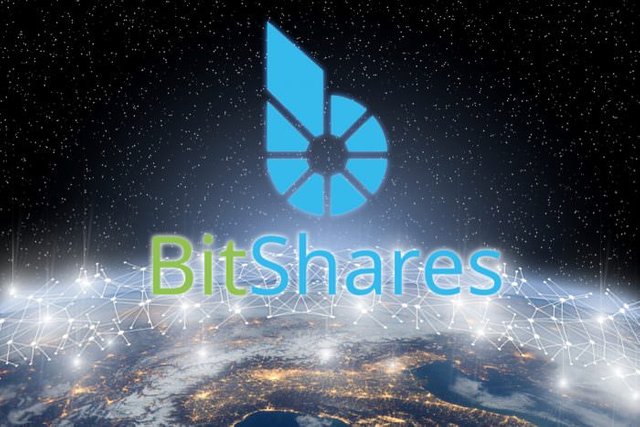BitShares vs Ethereum: what are the differences?
Ethereum and BitShares are both platforms that can be used to build decentralized blockchain applications. There are, however, some fundamental differences.
BitShares is a highly specialised development platform, focused on financial use cases, benefiting from extremely strong technical capability.
Ethereum, meanwhile, is known for its flexibility, with developers using the platform to develop blockchain offerings across a range of services. It has become the choice destination for third parties looking to launch blockchain apps and mount initial coin offerings (ICOs) to raise funds, and without the need to create their own blockchain technology to do so.
Ethereum
Conceived by Russian-Canadian programmer Vitalik Buterin in 2013, Ethereum blockchain technology essentially enables users to build their own smart contracts.
This flexibility comes from its Turing complete software model, which means developers can potentially build thousands of different types of apps on the Ethereum platform rather than having to create a separate blockchain for each app.

Ethereum: decentralized nodes replace the need to have a single point of control
The nodes of Ethereum’s decentralized network, across thousands of volunteer computers, store the current state of each smart contract. This means that every time a user transacts through the network, the various nodes must communicate with each other; all the nodes hold a copy of each transaction and the network-wide smart contract history.
Essentially, any service that is centralized, can be decentralized through Ethereum. The decentralized nodes replace the need to have a single point of control.
Vitalik Buterin
When Buterin created Ethereum his intention was to give internet users greater control over their data, something that has become an increasingly hot topic over the past few years. The technology’s premise was to upend the dominance of the centralized business models of internet giants such as Amazon.com and Facebook.
Proponents view Ethereum nodes as effectively making servers and clouds redundant, thereby bringing much greater competition to internet services.
The Ethereum blockchain native currency is ether and represents the fuel or “gas” needed to run the decentralized apps on the network. Ether can be mined but it is not finite.

Ethereum was conceived by Russian-Canadian programmer Vitalik Buterin in 2013
Given its flexibility, many technology startups have chosen to build their new apps through the Ethereum blockchain, using it as the basis for their own digital tokens.
When the tokens are issued through ICOs, investors must use ether to buy the new digital coins that are created. This has led to significant demand for ether, making it the fifth largest cryptocurrency in circulation today.
BitShares
BitShares was created by Dan Larimer in 2014, a programmer who is known for developing the Steem blockchain and more recently EOS. BitShares has always focused on enabling financial transactions and, through the BitShares decentralized exchange (DEX), digital assets can be both traded and created.
BitShares was developed through Graphene, a purpose-built, open source blockchain software toolkit. Graphene effectively makes BitShares technically superior to Ethereum, as it can handle up to 100,000 transactions per second compared with the latter’s 15 per second. To put this into perspective, Bitcoin blockchain can only handle 4 transactions per second.
The founding vision of BitShares was to make financial services available to all, even for people who don’t have their own bank account. In this way, BitShares was intended to challenge the dominance of mainstream financial institutions, but also to widen the availability of financial services.

Graphene effectively makes BitShares technically superior to Ethereum
Digital exchange
While having a focus on enabling financial transactions, today the BitShares platform is essentially an exchange that allows digital assets to be traded, as well as created. There are two kinds of digital assets that can be traded through the BitShares exchanges, so-called BitAssets or user-issued assets.
This leads us onto a major distinguishing feature of the BitShares platform; while there are lots of exchanges out there that allow you to trade cryptocurrencies, including the likes of bitcoin, litecoin, and ether, the BitShares platform actually allows you to trade traditional assets/currencies such as gold, oil or the US dollar in a digital form.
These BitAssets are set up so that they always correspond to the changing value of the underlying commodities or currencies they represent.
For instance, two of the most popular digital assets available on the exchange are bitUSD, which corresponds to the price of the US dollar, and bitGold. There are also BitShares versions of other major currencies, such as bitCNY, which is linked to China’s renminbi. The values these BitAsssets track are self-explanatory.

BitShares lets you trade digital coins representing the value of gold, oil and fiat currencies
BTS, the native cryptocurrency of the BitShares platform, is convertible to BitAssets and the tokens that are created on the network. Unlike Ethereum’s crypto ether, they cannot be mined. Anyone can create their own tradeable digital coin through the BitShares platform, a feature that can enable startup companies to crowdfund their projects.
Advancement
Ethereum and BitShares both mark important steps in the advancement of blockchain technology. In their own ways, they were both conceived to challenge centralization; the control and domination that big business exerts over digital technology.
Ethereum began with a wider scope than BitShares, seeking to decentralize the provision of any intermediary service through its blockchain technology. BitShares, meanwhile, was always focused on financial services.
Ethereum brings flexibility, enabling startups to create any app through its blockchain technology and then issue their own digital coins through the platform to raise funding for their projects. While viewed by many as a financial exchange more than anything else, BitShares also enables users to create their own digital coins to crowdfund projects.
Ethereum may have flexibility on its side, a trait that has turned it into the route of choice for those looking to develop a wide range of blockchain-based services, without having to devise their own blockchain technologies, as well as letting them successfully orchestrate ICOs.
BitShares, however, has superior technical capability on its side, with the capacity to cope with a far greater number of transactions per second as compared to Ethereum. This, together with the inherently low cost of transactions, gives it a formidable advantage over other blockchain competitors, not to mention traditional financial payments systems.

Decentralization brings advantages
Decentralization
Decentralization is the key guiding principle behind both the Ethereum and BitShares blockchain technologies. Ethereum creator Buterin sets out the three key reasons for decentralization as:
- Fault tolerance
- Attack resistance
- Collusion resistance.
Faults are less likely as decentralized systems are reliant on a great many disparate components. As there’s no central point of weakness, it’s much more difficult to harm or destroy a decentralized system through faults or attack.
The concept of “collusion resistance” has far deeper implications.
“It is much harder for participants in decentralized systems to collude to act in ways that benefit them at the expense of other participants, whereas the leaderships of corporations and governments collude in ways that benefit themselves but harm less well-coordinated citizens, customers, employees and the general public all the time,” says Buterin.
Post written by James Hester
James Hester is a financial journalist, specialising in investment. He has spent much of his career writing about traditional asset classes like equities and bonds. But with a strong interest in technology, today he also enjoys covering cryptocurrencies.
Follow OpenLedger!